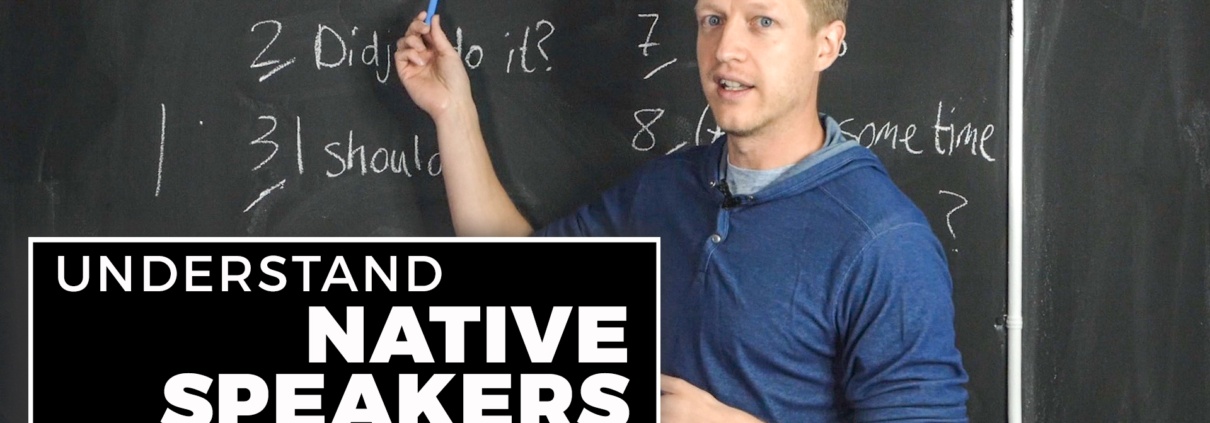Have you ever watched a TV show in English and thought, “what on earth did he/she say?”
If so, you’re not alone. Many learners tell me that they have problems understanding native speakers.
One of the reasons why this happens is because of relaxed pronunciation.
This lesson will explain what this is, why you should learn it, and it will give you the chance to go deeper. Watch the video and then, take the lesson below!
Relaxed pronunciation is very common in everyday English.
But…
… this might be one of the number one reason’s why you don’t understand relaxed pronunciation. Relaxed pronunciation is when you slur your words together. When you change the way a word sounds.
Here’s an example: I wanna go.
This is where, instead of saying “I want to go” you say “I wanna go.”
Again, this is incredibly common in everyday English. The problem is that if you don’t know this, then you won’t understand people when they speak.
Note: relaxed pronunciation can be informal. If in doubt, don’t use it. However, learning this and practicing it will help you understand it when you hear it.
These contractions are especially common in American English but are used in British English too.
Common Examples of Relaxed Pronunciation in British and American English
Let’s look at 10 examples of relaxed pronunciation. Try and work out what they all mean first. Go through the list and then, watch the video again to practice.
1: I kinda wanna go
Notice how quickly I said this in the video?
This means: I kind of want to go.
- I kinda like it
- I wanna go soon
2: Didja do it?
This means: did you do it?
- didja see that?
- didja go?
3: I shoulda done it
This means: I should have done it.
We can contract should have to should’ve. But you will also hear shoulda.
Here’s a lesson on this:
4: I hafta do it
This means: I have to do it.
- didja hafta do it?
- do I hafta go now?
5: Wouldja do it?
This means: would you do it?
Again, this is very common in everyday English. Learn it!
- wouldja help me with this?
- if you could, woulda?
6: D’ya wanna?
This can also be relaxed to ja wanna?
This means: do you want to?
The difference between the two here is big. Again, this is why it’s key to practice.
7: I dunno
This means: I don’t know.
For example:
- David: when are you leaving tomorrow?
- Paul: dunno
8: Gimme some time
This means: give me some time
Here are some more examples:
- gimme the pen (informal)
- gimme a minute and I’ll call you back
9: Whatcha doing?
I use this all the time.
This means: what are you doing?
More examples:
- whatcha wanna do later?
- whatcha having for lunch?
10: Doncha wish?
And finally, doncha. Or you might this written as don’t cha.
This means: don’t you.
Can you think of a song here? It’s very popular!
WHAT TO DO NOW…
Watch the video again to listen and repeat.
Then…
… join the To Fluency Program where you are going to get a full pronunciation tutorial that includes:
- 10 lessons on English pronunciation so you can learn everything you need to know
- downloadable audio so you can practice
- feedback from me so that you can get feedback
This is just a small part of the program.
Or if you want to get my book for free first:




